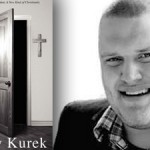The most radical kind of grace is the kind that has no expectations on the recipient. It loves and forgives before there is even a hint of worthiness or repentance. God doesn’t love what I’m to become. He doesn’t love the perfect idea or realization of David Hayward. He loves me as I am now. In fact, God loved me when I was dead, with nothing to offer and no hopes of offering anything back. This kind of radical grace, or love, is what the scriptures talk about.
Which is why it is just as important for me to love others in this way. It is completely expected for us to love those who show promise or from whom we can expect something back… even gratitude. But it is a radical kind of grace or love that loves and forgives without any hope of return. I reject the idea of loving someone because of their potential, or loving, forgiving or investing in the perfect idea of someone, my best idea of them. It is not remarkable to love someone because of what I hope they may become.
The same goes for the church. I refuse to love this community because of the potential it may have. It’s not helpful to love them because I believe they are going to be great. I am to love them now. Like the father loved the prodigal son even before he had a chance to open his mouth and repent, I am to love my community as they are… while they are on the road without any hopes of reaching the destination. I am to love them now, as they actually are, with no hope of change or response. I am to love them without an eye on my hopes, dreams, visions or expectations of them. I don’t love Rothesay Vineyard as an idea, but as they presently are.











